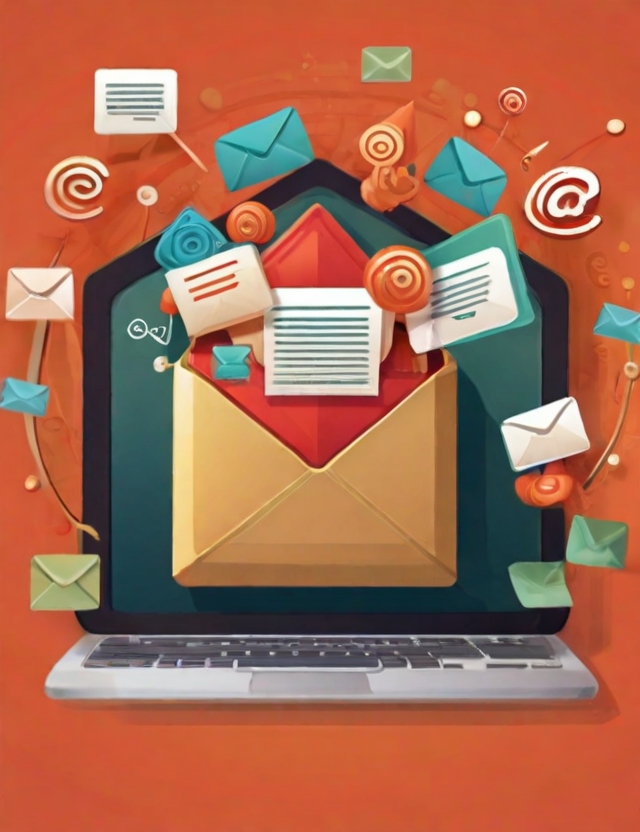The Power of Email Marketing: A
Comprehensive Guide to Boosting Business
Success
Introduction
In the ever-evolving landscape of digital marketing, one strategy has proven its resilience and effectiveness over the years – email marketing. This powerful tool has remained a cornerstone for businesses looking to connect with their audience, build relationships, and drive revenue. In this comprehensive guide, we will delve into the world of email marketing, exploring its benefits, best practices, and the key elements that contribute to its success.
The Evolution of Email Marketing
Email marketing has come a long way since its inception in the early days of the Internet. Initially, emails were simple text messages sent to communicate information. However, with technological advancements and the rise of e-commerce, email marketing has transformed into a sophisticated and highly targeted strategy.
Benefits of Email Marketing
Direct Communication: One of the primary advantages of email marketing is its direct and personalized communication. Businesses can tailor messages to specific segments of their audience, creating a more personalized experience.
Cost-Effective:
Compared to traditional marketing channels, email marketing is a cost-effective method for reaching a large audience. With minimal costs associated with design and distribution, businesses can achieve a high return on investment.
Measurable Results:
Email marketing provides detailed analytics that allows businesses to track and measure the performance of their campaigns. Metrics such as open rates, click-through rates, and conversion rates offer valuable insights for optimizing future strategies.
Increased Brand Awareness:
Consistent and well-crafted email campaigns help reinforce brand awareness. By regularly appearing in subscribers' inboxes, businesses can stay top-of-mind and build a stronger brand presence.
Key Elements of Successful Email Marketing
Building a Quality Email List:
The foundation of effective email marketing lies in having a high-quality email list. Rather than focusing on quantity, businesses should prioritize the quality of their subscribers. This involves obtaining permission, ensuring opt-in processes are clear, and regularly cleaning the list to remove inactive or disengaged contacts.
Segmentation and Personalization:
Segmentation allows businesses to divide their email list into specific groups based on various criteria such as demographics, behavior, or preferences. Personalizing content for each segment enhances relevance and engagement, leading to better results.
Compelling Content Creation:
Content is king, even in email marketing. Crafting compelling and relevant content that resonates with the audience is crucial. From attention-grabbing subject lines to informative and visually appealing body content, every element plays a role in capturing and maintaining the reader's interest.
Mobile Optimization:
With the increasing use of mobile devices, it's essential to optimize email campaigns for mobile responsiveness. Ensuring that emails are easily readable and navigable on smartphones and tablets enhances the user experience and prevents potential subscribers from disengaging due to poor mobile presentation.
A/B Testing for Optimization:
A/B testing involves experimenting with different elements of an email, such as subject lines, call-to-action buttons, or images, to determine what resonates best with the audience. This iterative process helps optimize campaigns for better performance over time.
Automation for Efficiency:
Email marketing automation streamlines processes and allows businesses to send targeted messages at the right time. Automation can be applied to welcome emails, drip campaigns, and even personalized product recommendations, saving time and increasing efficiency.
Compliance with Regulations: Adhering to email marketing regulations, such as the CAN-SPAM Act and the General Data Protection Regulation (GDPR), is crucial. Ensuring that subscribers have given explicit consent and providing easy options for opting out are essential practices for maintaining compliance and trust.
Conclusion
In the ever-evolving digital landscape, email marketing remains a stalwart strategy for businesses aiming to connect with their audience and drive results. By understanding the key elements of successful email marketing and embracing best practices, businesses can harness the power of this versatile tool to boost engagement, build lasting relationships, and ultimately drive business success. As technology continues to advance, staying abreast of emerging trends and continually refining email marketing strategies will be paramount to achieving sustained success in the competitive world of digital marketing.




.jpeg)






0 Comments